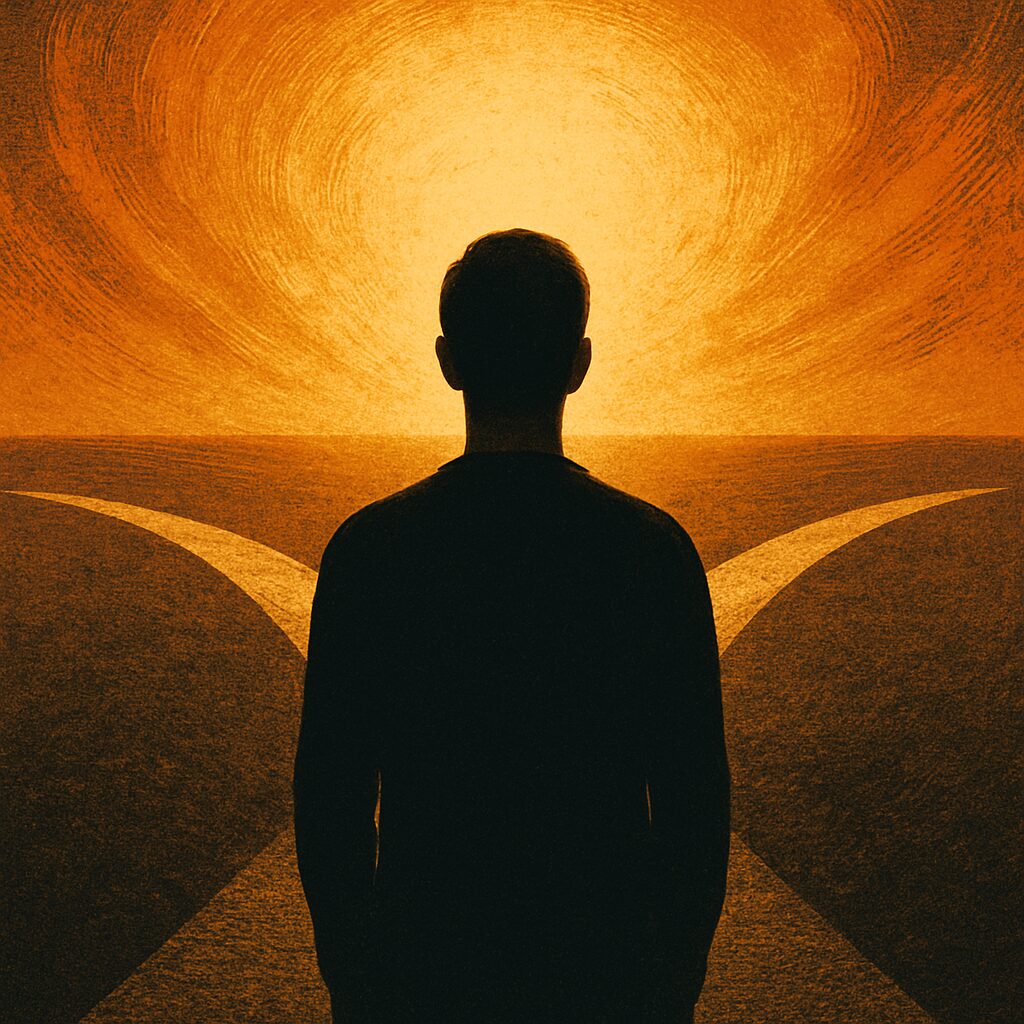It is no longer a matter of speculation. We have found ourselves in the midst of a crisis of meaning.
What our aching intuitions have long suspected is now hard fact. In the United States alone:
One in five adults suffers from anxiety-related disorders.
One in five adolescents experiences major depression.
Suicide rates have surged by over thirty percent in twenty-five years.
And the numbers are still rising.
It cannot be coincidental that during this same period, the percentage of Americans belonging to a faith community has dropped from over seventy percent to below fifty percent—the lowest in recorded history.
With the rise of secularism has come a collapse in meaning. Without belief in a higher power—and our purpose within it—we struggle to know what we’re living for.
Naturally, nihilism takes hold. For if there is no greater authority to please, then who is left to please but ourselves? Let us pursue wealth, pleasure, and power. Why not simply enjoy this complex and often trying life as best we can? As long as I don’t harm another, all should be well.
I’ve found myself caught in that pursuit. It feels nearly unavoidable in the trenches of today’s culture. And if you’re anything like me, seeking the pleasurable life, you’ve likely felt the aching emptiness that comes alongside it.
And when the pursuit fails to satisfy, we assume the fault must lie within ourselves. We haven’t achieved enough. Aren’t smart enough, or sophisticated, or talented, or athletic, or focused enough. An endless spiral looping into a bottomless well of anxiety.
Now, hear my sincere acknowledgment: I understand why so many have fled the Church instead of finding refuge within it. What began as a love-fueled gathering for the lowly in the first century eventually warped into an institution often marked by governance and control. Many have rightly recoiled from the greed, scandals, and hypocrisy that have too often plagued its walls.
“If that’s the God of the Bible,” you may have thought, “I want no part in it.”
No. That is not the God of the Bible. And that is not the authentic Church.
The true Church has always been present—history’s most consistent source of love, charity, shelter, and healing. The refuge for the lost and broken. The place where humanity finds the One who restores.
If this kind of Church sounds unfamiliar, then I hope to reintroduce you to the true words of Scripture—and through them, to the person of Christ. The Bible has always been the inspired word of God. And within its pages we may rediscover our way back to meaning and purpose. This is my driving hope.
In this series of essays, we will turn to Scripture as we face the questions that have long captivated the human mind. These are the great, enduring debates: Why are we here? What is the purpose of our lives? What happens when we die? And alongside them, deeper theological questions: Why does God allow evil? What purpose do we serve to an infinitely powerful God? Why does hell exist?
This series is written from a Christian theological lens, with the Bible as its framework. If you do not personally adhere to the Christian faith, dear reader, I invite you to continue with an open mind. These questions transcend creed, and the biblical perspective may offer insights that surprise you. You may discover that the Bible is much more sophisticated and enlightening than you might expect—even in this modern era.
I must confess—this is a selfish endeavor. I do not write because I possess great wisdom, but because I carry great questions. The very ones in these pages are the ones I wrestle with. My hope is that you and I might find harmony in the wrestling, as we step into this exploration together.
There is one agreement I ask of you before we begin: the universe, and its Creator, are infinitely complex. As much as we may long for airtight conclusions to life’s deepest questions, such clarity will inevitably evade us. But I believe the pursuit itself is sacred. In seeking, we are shaped. In wrestling, we are refined.
Let us pause and remember the wonder of childhood.
If you’re anything like me, it’s hard to return to those days bursting with life and vibrancy—the way my heart leapt watching a butterfly float by, or the thrill of clenching a flailing fish with trembling fingers. Time dulls the senses.
One of my greatest joys now is reliving that wonder through the eyes of my little girls, as they battle invisible forces and explore unseen worlds in our backyard. I’m sometimes envious. I remember how vivid those worlds once were for me too. Children remind us that the world—both seen and unseen—is still a beautiful place.
But how did this beautiful world, once bursting with wonder, become so complicated and numbing? In a world so alive with color and possibility, why have I been so deeply hurt by others? Why have I had to grieve lost loved ones and let go of cherished dreams? Why do I sometimes feel like I’m just floating, numb, from one responsibility to the next?
The world is beautiful. It is complicated. It is, at times, terrible. All of that is true.
So, who is this God who formed such a world? Who made creatures like us—beings with senses, emotions, longings, and all the mess that comes with them?
In a series where we will ask life’s biggest questions, this must be the first, and perhaps the last, question.
Who is God?

